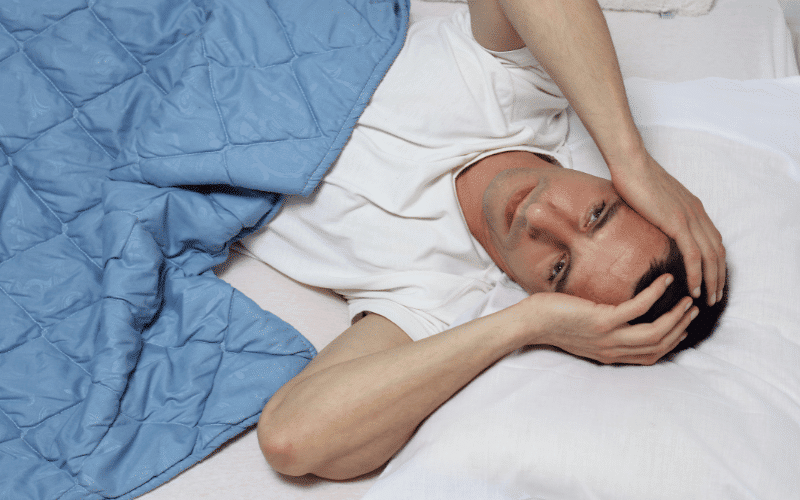4. Sleep Disorders – The Silent Night-time Struggle

Sleep disorders are a common yet often overlooked symptom of PDD. The most frequently reported sleep issues are insomnia, REM sleep behavior disorder, and excessive daytime sleepiness.
Insomnia refers to difficulties falling asleep or staying asleep, while REM sleep behavior disorder involves physically acting out vivid, often intense dreams. Excessive daytime sleepiness, on the other hand, includes symptoms like persistent tiredness and unintended episodes of falling asleep during the day.
Sleep disorders in PDD may begin subtly, with patients experiencing slightly disrupted sleep or feeling a bit more tired during the day. As the disease progresses, however, these symptoms may become more prominent and disruptive.
Patients may find themselves waking up multiple times during the night or having trouble falling asleep at all. Alternatively, they may act out their dreams by talking, shouting, or making complex movements during sleep, or they may feel persistently exhausted during the day, even after a full night’s sleep.
The presence of sleep disorders can significantly worsen the quality of life for individuals with PDD. It can exacerbate other symptoms, such as cognitive decline and mood changes, and can also increase the risk of falls and other accidents.
Furthermore, sleep disorders can place additional stress on caregivers, who may themselves experience disrupted sleep and increased stress. Recognizing and addressing sleep disorders can lead to improved symptom management and better overall quality of life for patients and caregivers alike. (4)